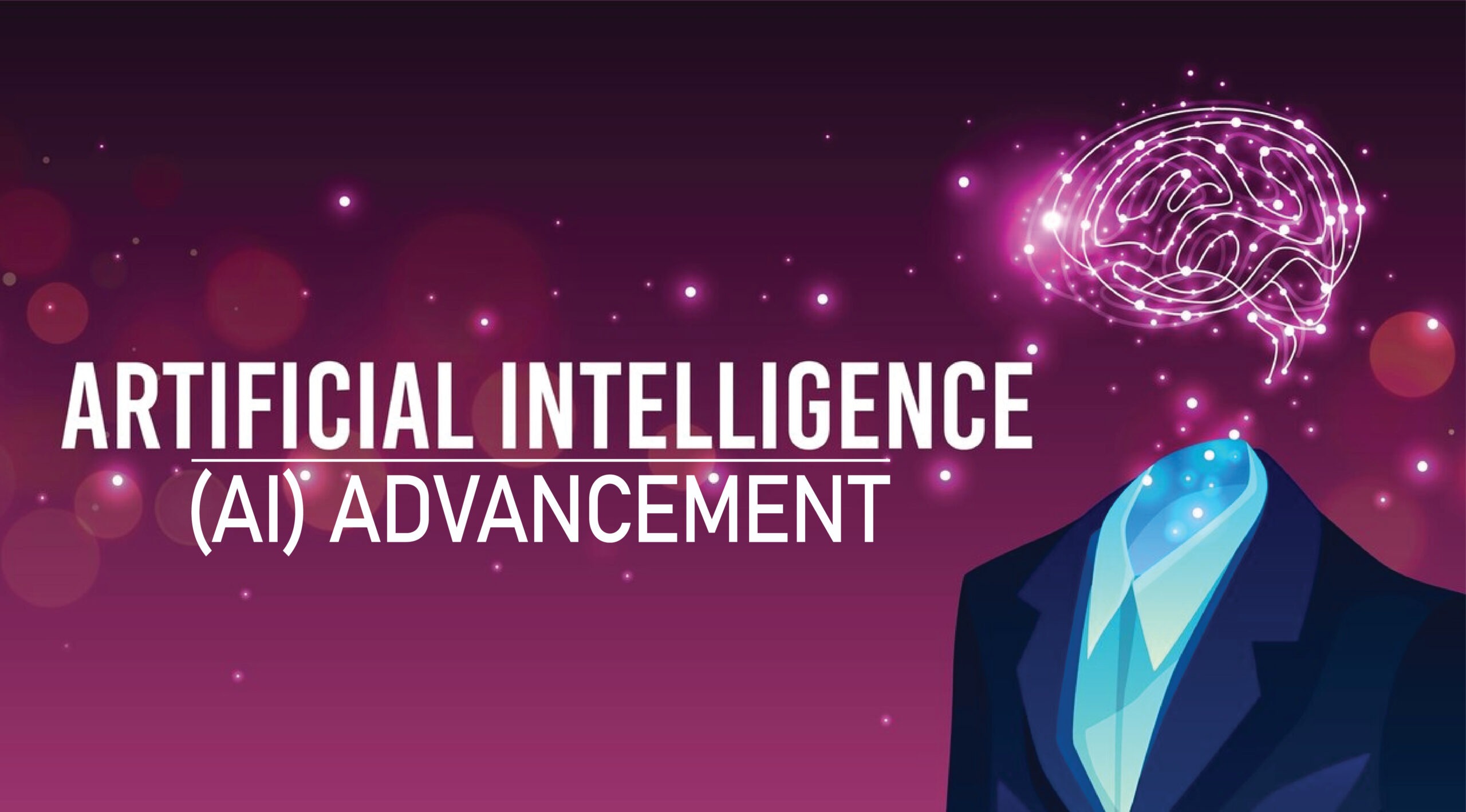Introduction
Rapid progress in Artificial Intelligence (AI) Advancements in technology have rebuilt industrial operations and generated new ways for us to function and express ourselves to others while living. Computer vision technology, deep learning, and natural language processing operate alongside robotics to drive machine learning advancements, enabling modern users to automate decision-making and solve problems throughout different industries.
The medical field uses AI to detect diseases early while providing customized treatments through robotic surgery to deliver better care outcomes to patients. AI technology enables financial organizations to identify fraud cases, evaluate risks, and conduct automated trading, yet education systems make use of Artificial Intelligence to build virtual tutor programs and individualized educational content.
The consumer-led sectors employ AI technology to build superior customer interactions and streamline distribution systems while producing original material formats. Artificial Intelligence (AI) Advancement development demands strict ethical practices because it faces ethical hurdles from data privacy complexities together with algorithmic artificial intelligence bias and employment elimination systems.
AI’s upcoming innovations in quantum computing and explainable Artificial Intelligence (AI) Advancements and human-AI collaboration will create groundbreaking breakthroughs that will form a smarter, advanced technological world of efficiency.
The Evolution of Artificial Intelligence (AI) Advancements
Scientists who studied machines to duplicate human intelligence began their work during the 1950s. The initial AI systems operated through fitful programming but they could not acquire knowledge automatically from the information. Modern developments in computing systems, data storage, capabilities, and algorithms have created advanced intelligent systems that display learning capabilities to perform reasoning tasks and solve problems autonomously.
Machine learning introduced in the 1980s enabled AI systems to escape finite rule-based programming structures. AI systems can now develop capabilities through data pattern detection, which leads to performance improvement over time. Deep learning became a reality in the 2000s through artificial neural networks and elevated AI functionality.
Key Artificial Intelligence (AI) Advancements
1. Machine Learning and Deep Learning
In modern computer science, Machine learning,g stands as the fundamental foundation behind artificial intelligence since it teaches computers to discover patterns from extensive databases without following programmed commands.
The subset of Artificial intelligence known as deep learning uses artificial neural networks that function similarly to human brain structures to analyze challenging patterns in the information. The technology delivers major operational benefits to speech recognition functions along with facial recognition capabilities and medical diagnostics procedures along with autonomous systems.
2. Natural Language Processing (NLP)
Artificial Intelligence (AI) Advancement technology achieves understanding and interpretation of human language through Natural Language Processing (NLP). The combination of AI chatbots and virtual assistants, along with real-time language translation services, functions because of NLP to provide smooth human-machine dialogue systems. The latest advanced NLP model, GPT from OpenAI and BERT from Google, le brought dramatic improvements to content generation and customer support alongside information retrieval operations.
3. Computer Vision
The ability of Artificial Intelligence (AI) Advancements to analyze and interpret visual information obtained from the actual world is enabled by computer vision. The technology operates within multiple applications, which include both medical imaging and facial recognition and autonomous vehicles and security systems. The deployment of AI computer vision security technologies produces improved diagnosis results in healthcare while also establishing better road safety by enabling recognition of road signs, pedestrians, and objects.
4. Autonomous Systems and Robotics
Industry sectors, including manufacturing and healthcare, receive fundamental changes through robotic systems and autonomous systems that use artificial intelligence technology. The navigation system of self-driving cars depends on Artificial Intelligence (AI) Advancement technology along with robotic process automation (RPA) that enhances business operation, and AI-controlled drones serve functions including agricultural monitoring, ng disaster response, and military surveillance. These innovations minimize human error, and at the same time, they maximize production outputs and operational performance rates.
5. Generative Artificial Intelligence (AI) Advancements and Creativity
Artificial Intelligence (AI) Advancements go beyond the traditional boundaries of data analysis and automation because they launched into creative territory. Artistic Artificial Intelligence (AI) Advancements models DALL-E and GPT-3 develop digital versions of art from various domains, including textual documents, musical scores, and multimedia products. Generative AI has transformed content creation operations in marketing,g advertising, and entertainment,t thus allowing businesses to produce high-end visual material and written content automatically.
Artificial Intelligence (AI) Advancements in Industry Applications
1. Healthcare
The medical field experiences substantial changes through Artificial Intelligence systems that advance disease detection procedures while enhancing picture analysis techniques and medicine development research. Through AI-powered tools, medical practitioners receive aid in the detection of disease indicators, including cancer,r and their ability to analyze medical imaging scans together with constructing individualized treatment approaches from patient healthcare records. Robot-assisted surgical methods have developed in precision, which leads to shorter healing periods as well as enhanced medical results.
2. Finance
The finance industry leverages Artificial Intelligence (AI) Advancements for fraud detection, risk assessment, and algorithmic trading. AI evaluates monumental financial information to discover fraudulent transactions and protect against cyber dangers. AI-powered trading systems employ instant investment automation to optimize financial portfolios, which generates higher returns.
3. Education
The educational landscape changes through Artificial Intelligence (AI) Advancements by delivering individualized education along with artificial tutors plus automatic grading tools. AI systems examine student learning behavior patterns to deliver customized educational content that helps students understand better. Educators receive performance assessments from AI-driven analytics, allowing them to modify their teaching approach, ch, and virtual tutors deliver real-time educational support for students.
4. Retail and E-commerce
Artificial Intelligence (AI) Advancements improve retail customer service by implementing recommendation engines and chatbots and controlling inventory maintenance. E-commerce platforms adopt AI to study how users behave on their platforms, which enables them to make individualized product suggestions to each user. The service provided by AI-powered chatbots helps customers resolve their questions so shopping becomes more efficient, and customers report higher satisfaction rates.
5. Entertainment and Media
The streaming services Netflix, together with YouTube and Spotify, implement artificial intelligence algorithms to suggest content recommendations matching each user’s personal preferences. Modern Artificial Intelligence (AI) advancement technology enables the production of music alongside compositions of films and articles, which are becoming popular through the use of AI algorithms. These algorithms now create musical work,s write news stories, es and make digital paintings. Media organizations use Artificial Intelligence (AI) Advancements to manage automated video processing as well as automated subtitle creation while handling content monitoring operations.
Challenges and Ethical Considerations
- The many advantages of AI do not alleviate the several challenges and ethical dilemmas it creates. The development of responsible Artificial Intelligence (AI) Advancements requires immediate solutions for data privacy issues along with methods for minimizing algorithmic bias as well as job displacement protection.
- AI systems need extensive data access that creates privacy risks through both unauthorized data access and vulnerabilities in information security. GDPR and comparable regulations protect user data, yet organizations, ns need effective security protocols to stop data breaches from happening.
- Artificial Intelligence (AI) Advances algorithms that process training data may acquire broken organizational principles, which leads to biased results. Developers need to establish training processes that integrate diverse datasets because this practice serves to decrease bias while enhancing fairness in AI model outputs.
- AI-powered automation processes have started to displace jobs, thus creating unemployment concerns among workers. Governments and organizations need to fund training initiatives for workers who require preparatory education concerning AI-based changes in their field.
- The development of Artificial Intelligence (AI) advancement systems requires responsibility, including clear, transparent measures, along with an obligation to explain decision-making bases and ethical conduct. Industry leaders and policymakers need to form regulations that direct the proper deployment of ethical artificial intelligence.
The Future of Artificial Intelligence (AI) Advancements
The future of AI holds limitless possibilities. The combination of quantum computing together with explainable AI and human-AI teamwork will transform business sectors. Quantum computing can boost Artificial Intelligence (AI) advanced processing capability,y which solves complex problems computers would normally struggle with.
The transparency initiative known as Explainable Artificial Intelligence (AI) Advancements functions to make decisions enabled by Artificial Intelligence (AI) Advancements are easier to interpret and thus build confidence in these systems. AI-human partnerships will raise efficiency levels because instead of substituting human workers, AI will assist with different responsibilities.
Conclusion
Artificial Intelligence (AI) effectively revolutionizes global operations by maximizing efficiency and automation, as well as decision intelligence in diverse business sectors. Artificial Intelligence (AI) Advances technology transforms how we utilize digital systems across healthcare so there is finance as well as educational facilities and the retail sector and entertainment through its enhancing daily operations.
AI development requires ongoing attention to problems that stem from data security issues alongside biases found in algorithms and ethical considerations affecting its use. Artificial Intelligence (AI) Advancements can fulfill endless possibilities through proper development methods and regulatory systems which promote b,oth innovation and human capability expansion.
At the forefront of progress is a combination of embracing the potential of Artificial Intelligence (AI) Advancements with establishing ethical guidelines that will build a technologically empowered and inclusive modern future.












Artificial Intelligence (AI) advancements are revolutionizing industries, enhancing decision-making, and driving innovation. From automation to personalized experiences, AI is shaping a smarter, more efficient, and transformative future for all. DumpsTrainer Exam prep empowers your success with expertly crafted practice tests, real exam questions, and detailed answers. Boost your confidence, master key concepts, and pass your certification exams on the first try with DumpsTrainer’s reliable study materials.
I have seen that car insurance providers know the vehicles which are susceptible to accidents along with other risks. They also know what kind of cars are susceptible to higher risk and the higher risk they’ve the higher the actual premium rate. Understanding the straightforward basics connected with car insurance will let you choose the right kind of insurance policy that can take care of your wants in case you get involved in an accident. Thank you sharing the particular ideas on your blog.
Hey There. I found your weblog the usage of msn. This is an extremely smartly written article. I?ll make sure to bookmark it and return to read more of your helpful information. Thank you for the post. I?ll definitely comeback.
Hello there, just changed into aware of your blog through Google, and located that it is truly informative. I am gonna watch out for brussels. I?ll be grateful if you continue this in future. Many people might be benefited from your writing. Cheers!
Yet another issue is that video games usually are serious in nature with the primary focus on finding out rather than leisure. Although, there is an entertainment element to keep children engaged, every single game is often designed to work towards a specific skill set or program, such as mathmatical or science. Thanks for your post.
What an insightful and well-researched article! The author’s meticulousness and ability to present intricate ideas in a digestible manner is truly commendable. I’m thoroughly enthralled by the depth of knowledge showcased in this piece. Thank you, author, for offering your knowledge with us. This article has been a true revelation!
I realized more new things on this weight loss issue. Just one issue is that good nutrition is tremendously vital if dieting. A huge reduction in junk food, sugary foods, fried foods, sugary foods, red meat, and white flour products may be necessary. Holding wastes parasitic organisms, and toxic compounds may prevent targets for losing weight. While certain drugs briefly solve the challenge, the awful side effects aren’t worth it, plus they never offer more than a non permanent solution. It is a known undeniable fact that 95 of fad diets fail. Many thanks sharing your thinking on this blog site.
It?s really a cool and helpful piece of info. I am glad that you shared this helpful information with us. Please keep us up to date like this. Thanks for sharing.
Thanks a lot for sharing this with all folks you really realize what you’re speaking approximately! Bookmarked. Kindly additionally consult with my website =). We could have a link change agreement among us!
Thanks for the sensible critique. Me and my neighbor were just preparing to do some research on this. We got a grab a book from our local library but I think I learned more from this post. I’m very glad to see such wonderful information being shared freely out there.
Do you have a spam problem on this blog; I also am a blogger, and I was wanting to know your situation; many of us have created some nice practices and we are looking to swap strategies with other folks, please shoot me an email if interested.
I’m really enjoying the design and layout of your site. It’s a very easy on the eyes which makes it much more enjoyable for me to come here and visit more often. Did you hire out a developer to create your theme? Fantastic work!
Nice post. I be taught something tougher on completely different blogs everyday. It would at all times be stimulating to read content material from other writers and practice a little bit something from their store. I?d favor to make use of some with the content material on my weblog whether you don?t mind. Natually I?ll provide you with a hyperlink on your net blog. Thanks for sharing.
One more thing. I really believe that there are many travel insurance web-sites of reliable companies that permit you to enter your trip details and get you the quotations. You can also purchase the particular international travel insurance policy on the internet by using your current credit card. All that you should do is always to enter your own travel particulars and you can begin to see the plans side-by-side. Merely find the package that suits your allowance and needs then use your credit card to buy the item. Travel insurance on the internet is a good way to check for a reliable company with regard to international travel cover. Thanks for expressing your ideas.
Thanks for the marvelous posting! I certainly enjoyed reading it, you may be a great author.I will be sure to bookmark your blog and will eventually come back someday. I want to encourage you to continue your great writing, have a nice weekend!
Thanks for the suggestions about credit repair on this amazing site. The things i would advice people will be to give up the actual mentality they will buy now and pay back later. As being a society most of us tend to repeat this for many factors. This includes getaways, furniture, and items we really want to have. However, you must separate a person’s wants from all the needs. As long as you’re working to boost your credit score make some trade-offs. For example it is possible to shop online to save money or you can click on second hand shops instead of pricey department stores with regard to clothing.
okmark your blog and check again here frequently. I’m quite sure I?ll learn many new stuff right here! Good luck for the next!
very nice submit, i definitely love this website, carry on it
It is appropriate time to make some plans for the future and it is time to be happy. I’ve read this post and if I could I desire to suggest you some interesting things or suggestions. Perhaps you could write next articles referring to this article. I wish to read more things about it!
An attention-grabbing discussion is worth comment. I believe that you must write extra on this subject, it won’t be a taboo subject but generally people are not enough to speak on such topics. To the next. Cheers
Along with every thing that appears to be building inside this specific subject material, your perspectives are actually rather stimulating. Nevertheless, I appologize, but I can not subscribe to your entire plan, all be it exciting none the less. It appears to everybody that your opinions are not totally rationalized and in fact you are generally your self not completely convinced of the point. In any case I did appreciate examining it.
Simply desire to say your article is as astounding. The clearness in your post is just cool and i can assume you’re an expert on this subject. Fine with your permission allow me to grab your feed to keep up to date with forthcoming post. Thanks a million and please continue the enjoyable work.
Valuable information. Fortunate me I found your website by chance, and I’m stunned why this twist of fate did not took place in advance! I bookmarked it.
Just desire to say your article is as astounding. The clarity for your post is simply spectacular and i can assume you are knowledgeable on this subject. Well together with your permission allow me to take hold of your RSS feed to keep up to date with impending post. Thanks a million and please continue the rewarding work.
Many thanks for this article. I would also like to convey that it can become hard while you are in school and simply starting out to initiate a long credit history. There are many scholars who are just simply trying to make it and have an extended or beneficial credit history are often a difficult factor to have.
One thing I would really like to say is that car insurance cancellations is a dreaded experience so if you’re doing the correct things being a driver you simply will not get one. Some people do have the notice that they have been officially dropped by their own insurance company they then have to fight to get further insurance from a cancellation. Inexpensive auto insurance rates are frequently hard to get from a cancellation. Knowing the main reasons pertaining to auto insurance termination can help drivers prevent losing one of the most significant privileges out there. Thanks for the tips shared through your blog.
Thanks for your post. I would also like to say that the health insurance broker also works for the benefit of the actual coordinators of any group insurance. The health insurance broker is given an index of benefits sought by anyone or a group coordinator. Exactly what a broker will is seek out individuals or maybe coordinators that best fit those wants. Then he presents his suggestions and if the two of you agree, the actual broker formulates a binding agreement between the 2 parties.
I’m not sure why but this blog is loading extremely slow for me. Is anyone else having this issue or is it a problem on my end? I’ll check back later on and see if the problem still exists.
I appreciate your wordpress design, wherever do you obtain it from?
I have figured out some important matters through your website post. One other thing I would like to state is that there are lots of games out there designed in particular for preschool age little ones. They include things like pattern recognition, colors, family pets, and patterns. These normally focus on familiarization in lieu of memorization. This keeps children and kids occupied without sensing like they are learning. Thanks
I?ve recently started a site, the information you offer on this site has helped me tremendously. Thank you for all of your time & work.
Write more, thats all I have to say. Literally, it seems as though you relied on the video to make your point. You obviously know what youre talking about, why waste your intelligence on just posting videos to your site when you could be giving us something enlightening to read?
This is very interesting, You’re a very skilled blogger. I have joined your feed and look forward to seeking more of your fantastic post. Also, I have shared your web site in my social networks!
I just added this blog to my rss reader, excellent stuff. Can not get enough!
Thanks for the thoughts you are giving on this blog. Another thing I would like to say is that getting hold of copies of your credit rating in order to scrutinize accuracy of the detail is one first measures you have to conduct in credit improvement. You are looking to thoroughly clean your credit profile from detrimental details faults that mess up your credit score.
I am curious to find out what blog platform you have been utilizing? I’m having some minor security problems with my latest website and I would like to find something more safe. Do you have any suggestions?
What I have observed in terms of computer system memory is always that there are specific features such as SDRAM, DDR and the like, that must go with the specifications of the motherboard. If the personal computer’s motherboard is fairly current while there are no operating-system issues, modernizing the ram literally normally requires under one hour. It’s one of several easiest personal computer upgrade procedures one can picture. Thanks for discussing your ideas.
Thanks for revealing your ideas. Something is that pupils have an option between federal student loan along with a private student loan where it really is easier to decide on student loan debt consolidation loan than in the federal student loan.
9y0dda
Just read the article and I have to say—really well done. It was super informative, easy to follow, and actually learned a a few things new things. Definitely worth the read!
ddqfmv
Thanks for your post right here. One thing I would like to say is most professional domains consider the Bachelors Degree just as the entry level standard for an online college degree. While Associate Certifications are a great way to start, completing the Bachelors opens many entrances to various occupations, there are numerous online Bachelor Course Programs available coming from institutions like The University of Phoenix, Intercontinental University Online and Kaplan. Another issue is that many brick and mortar institutions offer you Online variations of their certifications but usually for a drastically higher payment than the organizations that specialize in online education plans.
Nice post. I be taught something more difficult on completely different blogs everyday. It is going to at all times be stimulating to read content material from different writers and practice a little one thing from their store. I?d prefer to use some with the content on my blog whether or not you don?t mind. Natually I?ll give you a link on your internet blog. Thanks for sharing.
hello!,I like your writing so much! share we communicate more about your post on AOL? I require an expert on this area to solve my problem. May be that’s you! Looking forward to see you.
Excellent read, I just passed this onto a colleague who was doing some research on that. And he actually bought me lunch because I found it for him smile Therefore let me rephrase that: Thanks for lunch!
Hello would you mind stating which blog platform you’re using? I’m planning to start my own blog in the near future but I’m having a difficult time deciding between BlogEngine/Wordpress/B2evolution and Drupal. The reason I ask is because your layout seems different then most blogs and I’m looking for something completely unique. P.S My apologies for getting off-topic but I had to ask!
I like what you guys are up too. Such smart work and reporting! Keep up the superb works guys I?ve incorporated you guys to my blogroll. I think it will improve the value of my web site 🙂
One thing is that if you find yourself searching for a student loan you may find that you will need a co-signer. There are many situations where this is correct because you may find that you do not possess a past credit score so the loan provider will require that you’ve got someone cosign the borrowed funds for you. Great post.
Hi, i think that i saw you visited my website so i came to ?return the favor?.I’m attempting to find things to improve my web site!I suppose its ok to use some of your ideas!!
A formidable share, I simply given this onto a colleague who was doing just a little evaluation on this. And he in actual fact bought me breakfast because I discovered it for him.. smile. So let me reword that: Thnx for the deal with! But yeah Thnkx for spending the time to discuss this, I really feel strongly about it and love reading extra on this topic. If doable, as you turn out to be experience, would you thoughts updating your blog with more particulars? It’s extremely helpful for me. Massive thumb up for this weblog post!
Howdy! Would you mind if I share your blog with my myspace group? There’s a lot of people that I think would really enjoy your content. Please let me know. Thank you
affordablecanvaspaintings.com.au is Australia Popular Online 100 percent Handmade Art Store. We deliver Budget Handmade Canvas Paintings, Abstract Art, Oil Paintings, Artwork Sale, Acrylic Wall Art Paintings, Custom Art, Oil Portraits, Pet Paintings, Building Paintings etc. 1000+ Designs To Choose From, Highly Experienced Artists team, Up-to 50 percent OFF SALE and FREE Delivery Australia, Sydney, Melbourne, Brisbane, Adelaide, Hobart and all regional areas. We ship worldwide international locations. Order Online Your Handmade Art Today.
Audio started playing as soon as I opened up this blog, so annoying!
I like the helpful information you provide in your articles. I will bookmark your weblog and check again here frequently. I am quite certain I will learn lots of new stuff right here! Best of luck for the next!
Thanks for your publiction. Another factor is that being a photographer consists of not only problems in catching award-winning photographs and also hardships in acquiring the best camera suited to your requirements and most especially situations in maintaining the quality of your camera. This is very true and evident for those photographers that are in capturing the actual nature’s fascinating scenes : the mountains, the forests, the wild or perhaps the seas. Going to these daring places absolutely requires a digicam that can live up to the wild’s hard settings.
5agb6p
What?s Happening i’m new to this, I stumbled upon this I’ve found It absolutely helpful and it has aided me out loads. I hope to contribute & help other users like its helped me. Great job.
You made some first rate factors there. I seemed on the internet for the difficulty and located most people will associate with together with your website.
Thanks for your posting. I have constantly noticed that a lot of people are needing to lose weight since they wish to look slim in addition to looking attractive. Nonetheless, they do not usually realize that there are additional benefits just for losing weight also. Doctors state that fat people experience a variety of disorders that can be instantly attributed to the excess weight. Thankfully that people who are overweight along with suffering from numerous diseases can reduce the severity of the illnesses through losing weight. You’ll be able to see a steady but identifiable improvement with health if even a minor amount of fat loss is achieved.
Thanks for the posting. My partner and i have constantly seen that the majority of people are needing to lose weight since they wish to appear slim as well as attractive. Nevertheless, they do not always realize that there are more benefits to losing weight additionally. Doctors state that obese people have problems with a variety of disorders that can be perfectely attributed to their particular excess weight. The great news is that people that are overweight along with suffering from numerous diseases can help to eliminate the severity of their particular illnesses by losing weight. It is easy to see a progressive but marked improvement in health if even a negligible amount of fat reduction is realized.
Its like you read my mind! You seem to know so much about this, like you wrote the book in it or something. I think that you can do with a few pics to drive the message home a bit, but other than that, this is excellent blog. A fantastic read. I’ll certainly be back.
Hi there, You’ve done a great job. I?ll certainly digg it and personally recommend to my friends. I’m confident they will be benefited from this web site.
Interesting blog post. What I would like to add is that computer system memory should be purchased if your computer is unable to cope with whatever you do along with it. One can put in two good old ram boards with 1GB each, as an example, but not one of 1GB and one having 2GB. One should always check the maker’s documentation for one’s PC to make certain what type of ram is essential.
You really make it appear so easy together with your presentation but I find this matter to be actually one thing that I believe I might by no means understand. It kind of feels too complicated and extremely huge for me. I’m taking a look forward for your next put up, I?ll try to get the grasp of it!
I am curious to find out what blog system you are working with? I’m experiencing some small security issues with my latest website and I’d like to find something more secure. Do you have any suggestions?
I’m impressed by the quality of this content! The author has clearly put a great amount of effort into investigating and organizing the information. It’s inspiring to come across an article that not only offers valuable information but also keeps the readers captivated from start to finish. Hats off to her for creating such a masterpiece!
I appreciate, cause I found exactly what I was looking for. You have ended my four day long hunt! God Bless you man. Have a nice day. Bye
Hmm is anyone else encountering problems with the images on this blog loading? I’m trying to figure out if its a problem on my end or if it’s the blog. Any feedback would be greatly appreciated.
I am extremely impressed with your writing skills and also with the layout on your weblog. Is this a paid theme or did you customize it yourself? Either way keep up the excellent quality writing, it?s rare to see a nice blog like this one nowadays..
Wonderful blog! I found it while searching on Yahoo News. Do you have any suggestions on how to get listed in Yahoo News? I’ve been trying for a while but I never seem to get there! Many thanks
A few things i have seen in terms of pc memory is the fact there are specifications such as SDRAM, DDR and so forth, that must fit in with the specs of the motherboard. If the personal computer’s motherboard is reasonably current and there are no os issues, updating the memory space literally takes under sixty minutes. It’s one of many easiest pc upgrade types of procedures one can visualize. Thanks for discussing your ideas.
you’re really a good webmaster. The website loading speed is incredible. It seems that you’re doing any unique trick. Also, The contents are masterwork. you’ve done a fantastic job on this topic!
This is very interesting, You are a very skilled blogger. I’ve joined your feed and look forward to seeking more of your fantastic post. Also, I’ve shared your web site in my social networks!
I’m curious to find out what blog platform you have been working with? I’m having some small security problems with my latest site and I would like to find something more safe. Do you have any recommendations?
One thing is that if you are searching for a student loan you may find that you’ll need a co-signer. There are many scenarios where this is correct because you may find that you do not possess a past credit ranking so the lender will require that you’ve someone cosign the borrowed funds for you. Thanks for your post.
Hi there this is kind of of off topic but I was wondering if blogs use WYSIWYG editors or if you have to manually code with HTML. I’m starting a blog soon but have no coding expertise so I wanted to get guidance from someone with experience. Any help would be greatly appreciated!
It?s really a great and useful piece of info. I am happy that you simply shared this useful info with us. Please keep us informed like this. Thank you for sharing.
Wow, superb weblog format! How lengthy have you ever been running a blog for? you make running a blog look easy. The total look of your website is fantastic, let alone the content material!
I have read several just right stuff here. Definitely value bookmarking for revisiting. I surprise how so much effort you place to make the sort of wonderful informative site.
Thank you, I’ve been looking for details about this subject matter for ages and yours is the best I have located so far.
I think that a property foreclosure can have a important effect on the debtor’s life. Real estate foreclosures can have a 6 to ten years negative impact on a borrower’s credit report. The borrower who may have applied for a home loan or just about any loans even, knows that your worse credit rating is definitely, the more complicated it is to acquire a decent loan. In addition, it can affect a new borrower’s capacity to find a reasonable place to let or rent, if that results in being the alternative housing solution. Good blog post.